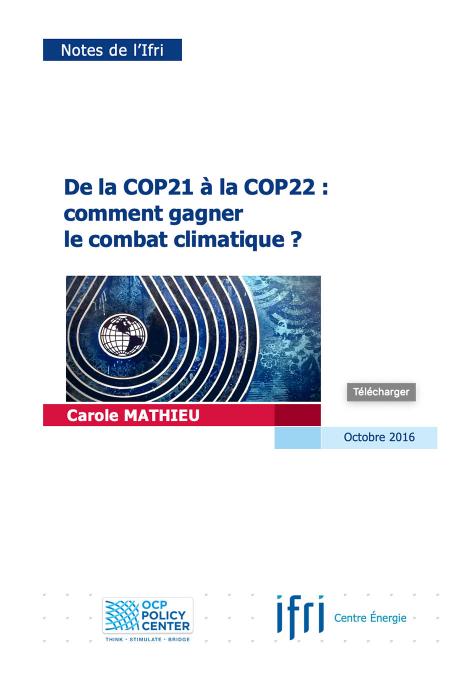Publications /
Policy Paper
En décembre 2015, la COP21 a abouti à un nouvel accord international dans le domaine de la lutte contre le réchauffement climatique, ouvrant la voie à un changement d’échelle des efforts d’atténuation et d’adaptation. La nécessité d’agir vite ayant été fermement exprimée, 2016 fait figure d’année test pour la crédibilité des engagements pris à Paris.
Les politiques climatiques tendent effectivement à se généraliser mais aussi à s’ajuster aux contraintes et aux besoins locaux, écartant l’hypothèse d’un modèle uniforme de régulation des émissions. Si la transition bas-carbone est bien en marche, son rythme et ses modalités semblent encore trop incertains pour sortir les décideurs économiques de leur réserve vis-à-vis des choix décarbonés. La COP22, qui se tiendra à Marrakech en novembre 2016, sera l’occasion de mettre un terme à ces hésitations, en renforçant la pression politique et médiatique, en consolidant le principe de justice climatique et enfin, plus largement, en approfondissant la réflexion sur les moyens de mener une transition ordonnée vers la neutralité carbone.



